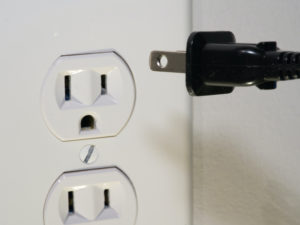Learn Just Transition Principles
The term “just transition,” generally refers to the concept of shifting from our current extractive, unsustainable society and economy, which has harmed our environment and particular groups of people, to an equitable, regenerative society and economy. Demands for a just transition have their roots in the environmental justice movement, which arose in the 1960s when advocates, often from poor and marginalized communities, began protesting the siting of hazardous waste facilities and industrial pollution in their neighborhoods, and in labor movements, in which activists urged for more unionization and protection for workers.
A truly just transition, then, would simultaneously protect the health and dignity of workers and frontline communities, especially those who have historically been the most impacted by harmful industrial practices, and the environment. While there are many organizations who advocate for a just transition and thus all have slightly different principles, the core ideas behind those just transition principles are the same. Among the essential principles are:
- All people (including workers, community residents and Indigenous people) have the fundamental right to a clean and safe environment.
- A health economy and safe environment can coexist with sustainable development.
- The development of fair systems in society must include frontline communities and those most affected by pollution and systemic inequities caused by systems of oppression and exploitation.
- The costs of achieving sustainable development should not be borne by those most affected by environmental and economic injustices, and should instead involve an equitable redistribution of resources and power.
The term “energy democracy” is one specific aspect of a just transition. Similarly to the concept of a just transition, there is no singular definition of what an energy democracy is or how society can shift towards an energy democracy. However the basic principles of energy democracy are:
- All people should have access to sufficient and affordable energy.
- The energy system must shift towards a sustainable, renewable system in which local generation of energy is emphasized.
- A new energy system must also create fairly paid and unionized jobs within the sector.
- The new energy system must be based upon community participation in policy-making and democratic control, in which there is complete transparency and accountability to the people.
Learn more about just transition principles by visiting the Just Transition Alliance’s website and the Climate Justice Alliance’s website. You can also learn more about the basic principles of energy democracy here. You can learn more about organizations advocating for a just transition right here in Duluth, like Honor the Earth, the Sierra Club, and others that have been featured on the Citizen’s Climate Action Plan website.
Did you take this action? Report it!
Help us show our collective community impact by reporting that you took this action.



